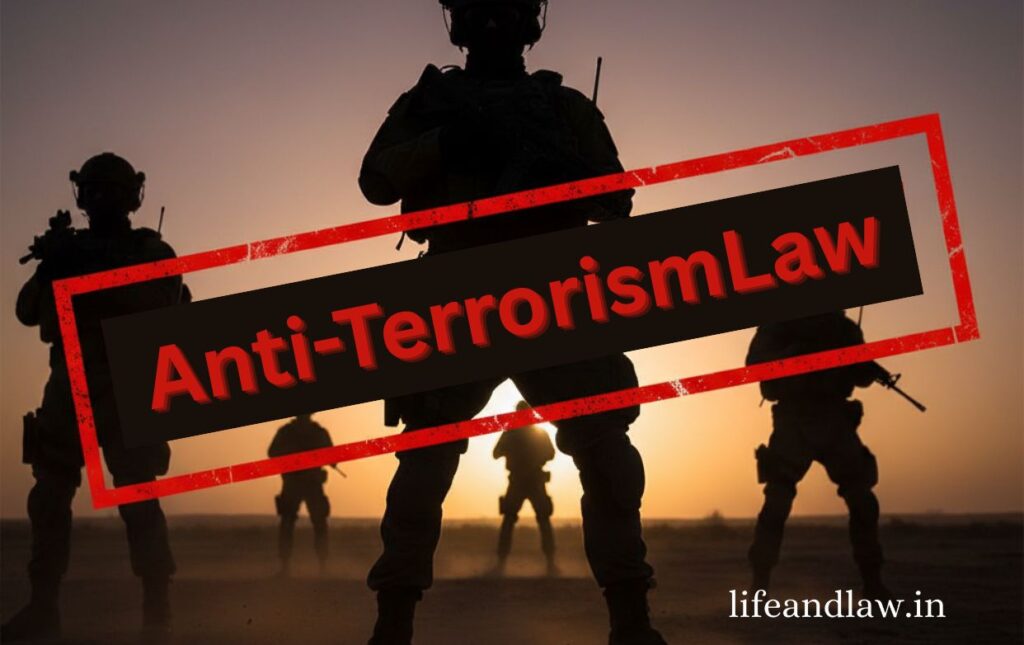Trending

Terrorism is a significant danger to national security, societal harmony, and human ideals. Combating it involves more than just legal frameworks and government engagement; it necessitates active participation from vigilant and responsible citizens. Public awareness, attention, and collaboration with security services are critical components in identifying and preventing potential threats.
The aim of this article is to raise awareness of anti-terrorist legislation and the role of ordinary citizens in the fight against terrorism. Understanding our legal safeguards and accepting civic responsibility are critical steps towards creating a safer, more cohesive, and resilient society.
Terrorism refers to violent acts intended to cause terror, unrest, or instability in society for political, religious, ideological, or other reasons. These acts can include bombings, assassinations, kidnappings, suicide strikes, and cyberattacks.
The primary goal is to exert pressure on governments or organisations to change their policies or meet specific demands. Because such assaults frequently target innocent civilians, they have a significant societal impact, instilling fear, generating economic losses, and disrupting social cohesion. Terrorism is often divided into two categories:
1.Unlawful Activities Prevention Act (UAPA) of 1967.
This law gives the federal government the authority to declare individuals or groups as terrorists if they endanger India’s sovereignty, integrity, or security. It allows for arrests, asset seizures, and severe legal action against suspects.
2.National Investigation Agency (NIA) Act of 2008.
This law, passed following the 2008 terrorist strikes, formed the NIA, which investigates major terrorism-related crimes throughout India. The agency can function without state approval, resulting in faster and more effective investigations.
3.Arms Act of 1959.
This statute requires licenses for firearm possession and severe rules to prevent terrorists from obtaining illegal weapons. Manufacturing, storing, or using such weapons without a licence is a criminal offence.
4.Explosives Act of 1884.
This regulation, which originated during British control, governs the manufacture, storage, and transportation of explosives. Possession without authorisation is a serious felony, and violators face severe penalties.
5.The Prevention of Money Laundering Act (PMLA), 2002
Terrorist networks frequently rely on unlawful financial transactions, known as money laundering. This law enables authorities to monitor such transactions, seize assets, and take legal action to destroy terrorist funding networks.
6.Bharatiya Nyaya Sanhita (BNS) Section 113
This section addresses terrorist crimes committed with explosives, firearms, or hazardous materials with the intent to harm unity, sovereignty, public safety, or national infrastructure. It imposes harsh punishments, including life imprisonment or the death sentence, on those who help, fund, or hide terrorists.
Laws and security forces alone cannot eradicate terrorism. Citizen awareness and vigilance are critical. People must keep an eye out for suspicious activity in their immediate surroundings. Unusual behaviour, unexplained objects or parcels, or anything out of the norm should be reported to law enforcement or security services right away.
Citizens must also stop the dissemination of incorrect information, rumours, and extremist ideology on social media. Misinformation can instill fear and confusion, which can help terrorists achieve their objectives. Verifying facts from credible sources and avoiding false information are critical duties.
Youth and students play a very crucial role. Educational institutions should raise anti-terrorism knowledge, spread themes of peace and tolerance, and instill patriotism. A watchful citizen acts not only for themselves, but also for the greater good. Their proactive involvement enhances national security.
The government and security forces’ actions are more effective when residents are alert. By remaining aware and responsible, everyone can help to keep their communities safe and peaceful.
Terrorism poses a major danger to India’s security and unity. While robust laws and effective security services are crucial, vigilant and responsible citizens play an equally important role. Prompt reporting of suspected activity can substantially aid in preventive measures and national security operations.
This reflection is provided by Adv. Abdul Mulla, who actively publishes on legal and civic concerns through platforms such as www.asmlegalservices.in and www.lifeandlaw.in, with the goal of raising public awareness and encouraging lawful, informed participation in improving the nation’s battle against terrorism.
Adv. Abdul Mulla (Mob. No. 937 007 2022) is a seasoned legal professional with over 18 years of experience in advocacy, specializing in diverse areas of law, including Real Estate and Property Law, Matrimonial and Divorce Matters, Litigation and Dispute Resolution, and Will and Succession Planning. read more….
Copyright BlazeThemes. 2025